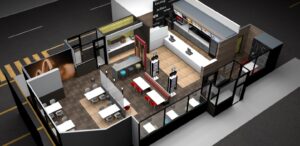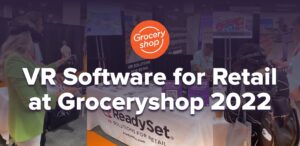Top Retail Technology Trends at NRF 2023
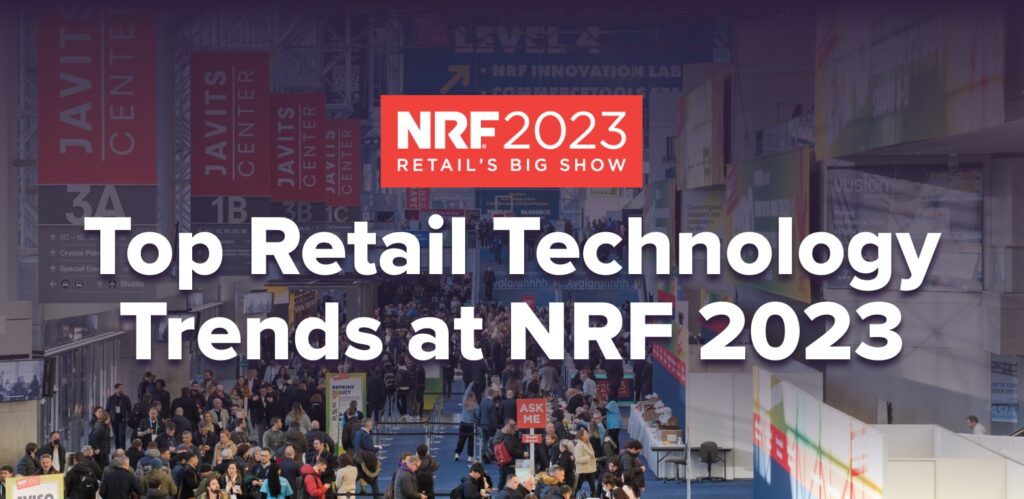
This year's NRF big show showcased numerous retail tech solution companies with the latest developments in digital twins, customer insights, artificial intelligence and virtual reality.
We recently went to the largest retail industry event in New York City to discover retail trends for 2023. All of the top retail technology companies were in one place to educate retailers on the latest digital transformation strategies.
Here are some of the top retail tech companies and tech trends that we saw at the NRF big show 2023.
- Digital twins for merchandising and store layouts
- Better customer analytics with virtual reality shopper studies
- Improve customer service through AI-powered Chatbots
- Next-level customer experiences through metaverse stores
Retailers can use digital twins to simulate and optimize store layouts, display placement, and in-store experiences. Create virtual store experiences and test different store designs, layouts, and product displays to determine what resonates with customers. Retailers can use VR to simulate product displays and test different product arrangements to determine the most effective layout.
ReadySet virtual retail planning software was featured at booth #8033 within the innovation lab. This VR software provides brands and retailers with store lab digital twins for layout or merchandise visualization and testing. The ReadySet team live demoed their capabilities using an HP Omnicept VR headset that transported NRF attendees into a digital twin Target store to shop within the cleaning category while it tracked their eye gaze and purchases.
View this post on Instagram
VR shopper research is a technology that uses a VR headset with sensors to track and analyze where people are looking in virtual store environments. These VR shopper studies provide retailers with real-time data and insights, allowing them to make informed decisions about their operations and improve their overall performance.
For shopper research and customer analytics, eye-tracking VR can be used to test brick and mortar store designs, layouts, and product displays to determine what elements are most effective in capturing shopper attention. It provides valuable insights into the customer experience, including how customers interact with products and what aspects of the store environment are most important to them. It helps retailers understand how customers engage with different in-store promotions and displays, allowing them to optimize their marketing efforts.
Overall, eye-tracking VR provides retailers with a cost-effective way to conduct market research and gather valuable insights into customer preferences and behaviors. It offers a unique experience and collects highly accurate shopper insights that allow retailers to make data-driven decisions that improve their operations and customer satisfaction.
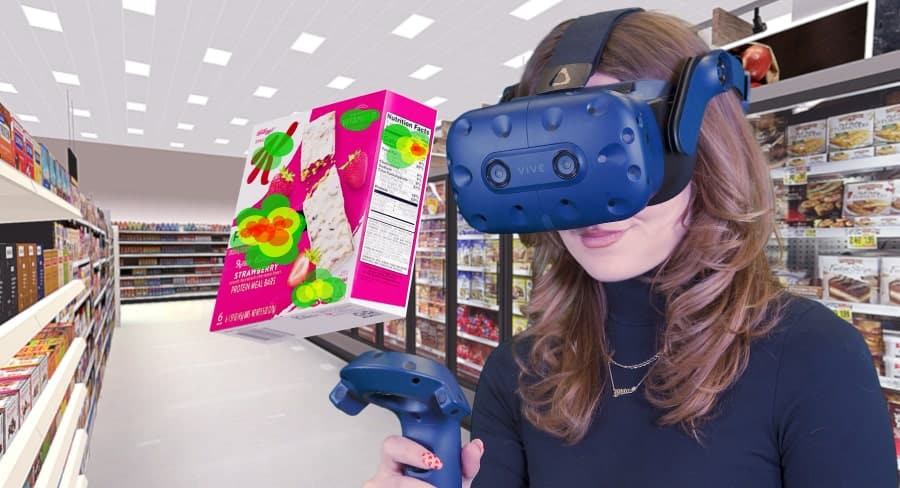
Numerous types of chatbot platforms were present at NRF 2023. Chatbots can assist customers with questions and provide 24/7 support, reducing wait times and improving the customer experience. They are able to provide personalized product recommendations based on customer preferences and purchase history. They will also assist customers with placing and tracking orders, providing real-time updates and reducing the workload for customer service teams.
Chatbots can assist customers with returns and exchanges, streamlining the process and improving customer satisfaction. Retailers may use chatbots to promote products and offer discounts and promotions to customers. Retailers are also able to collect customer information and generate leads for sales and marketing teams using chatbots.
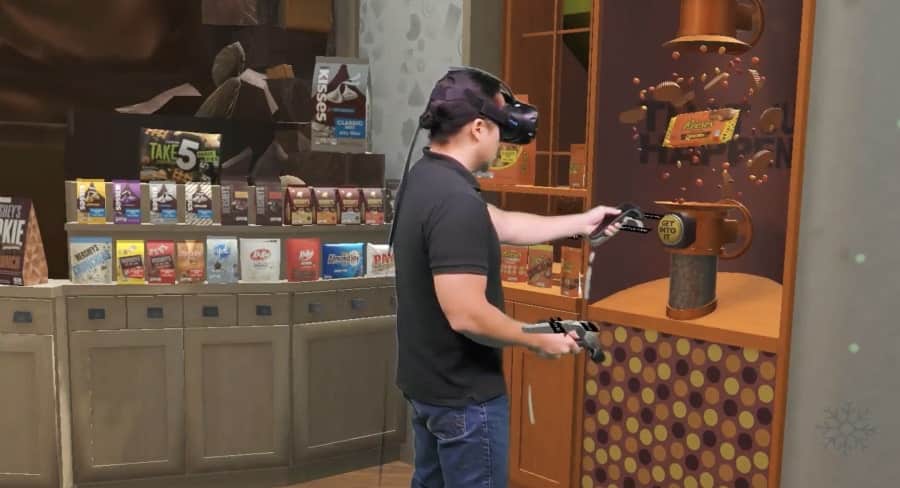
The NRF innovation lab made it clear that many retailers are in the process of exploring metaverse technologies to establish their virtual store experiences.
A metaverse store is a virtual store within a metaverse, which is a world or universe in virtual reality that is designed to be inhabited and experienced by VR headset users. Metaverse stores are designed to provide customers with an immersive shopping experience that goes beyond traditional e-commerce platforms. These virtual stores offer customers the ability to interact with products, try on clothes, and experience virtual environments that simulate real-life shopping experiences before making an online purchase.
In a metaverse store, customers can use avatars to navigate the virtual environment and interact with products, sales associates, and other customers. Retailers can use metaverse stores to showcase products in new and innovative ways, to create unique and memorable shopping experiences, and to reach new customers in the growing metaverse. They can also use the data collected from metaverse stores to gain valuable insights into customer behavior and preferences, allowing them to improve their overall operations and customer satisfaction.
Subscribe to our newsletter
Get our blogs and the latest retail news delivered to your inbox monthly.
Recent Posts
What is Digital Twin Technology and How it helps Retail 2023
Digital twins in the retail industry are virtual replica stores that can help retailers reduce costs, improve efficiency, and increase productivity. The term digital twin has entered the vocabulary of retail industry experts and leaders. But what does it mean? We will explore the definition, use cases, examples, softwares and common questions associated with digital…
2022 Holiday Shopping Trends & How Brands can be Successful
Consumer trends for this year’s holiday shopping season include spending less and shopping early. Learn how your brand can make it to the cart. The holiday season is fast approaching and this year is unlike many others. Consumers are battling record high inflation, persisting supply chain issues, a labor shortage, increased gas prices and continued…
Virtual Reality Software for Retail at Groceryshop 2022
This year’s show featured a new virtual reality shopping technology for retailers and brands to enhance consumer experiences. The Groceryshop conference in Las Vegas is a leading event for CPG brands, supermarkets, c-stores, drug stores, discount stores, warehouse clubs and other grocery retailers. This year’s Groceryshop Vegas was held at Mandalay Bay on September 19-22. The…

